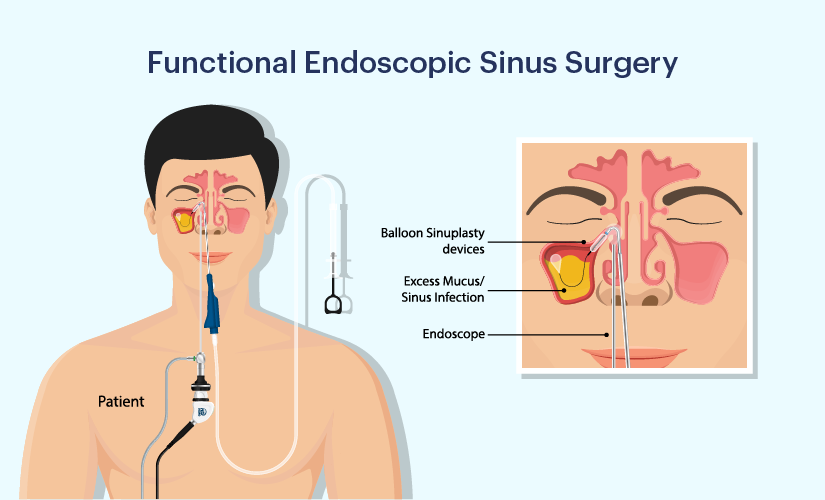Definition:
Functional Endoscopic Sinus Surgery (FESS) is a minimally invasive surgical procedure used to treat chronic sinusitis and other sinus-related conditions. It involves the use of an endoscope—a thin, flexible tube with a light and camera—to view the sinus passages and guide the removal of blockages, polyps, or infected tissue, improving sinus drainage and function.
Purpose:
The primary goals of FESS are to:
- Restore normal drainage of the sinuses.
- Relieve symptoms of chronic sinusitis, such as nasal congestion, facial pain, and recurrent infections.
- Improve airflow through the nasal passages.
- Enhance the quality of life for patients with chronic sinus issues.

